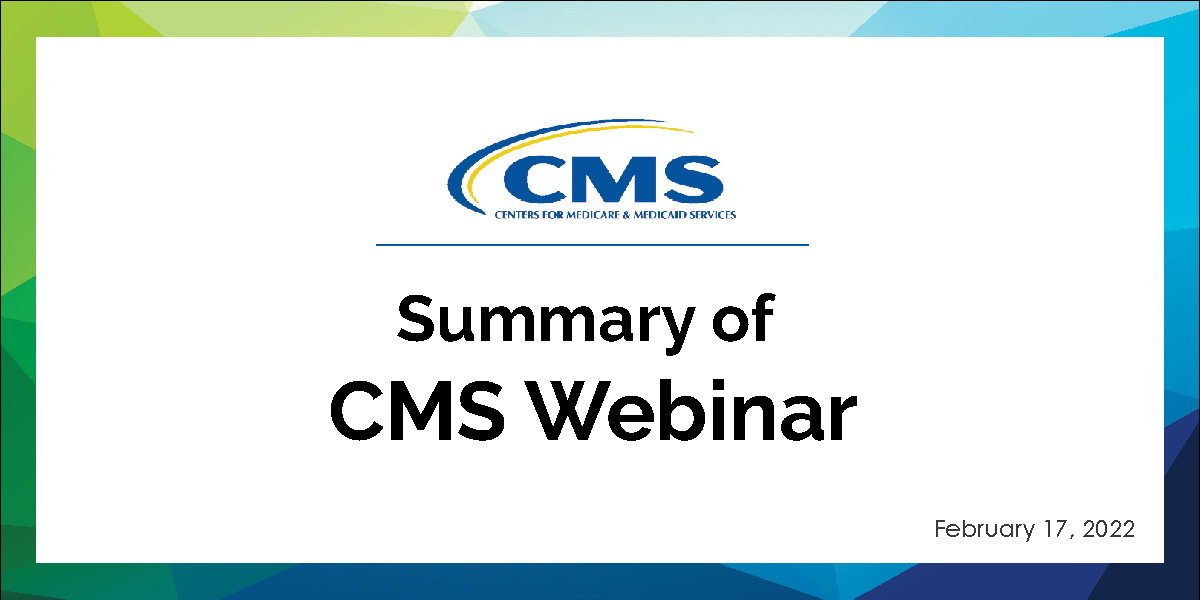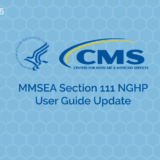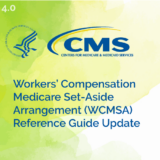Protecting Medicare’s interests in a settlement is a legal requirement. In 1980 Congress enacted the Medicare Secondary Payer Statute (42 U.S.C. 1395y(b) or MSP), giving Medicare rights as a “Secondary Payer”. While the MSP does not specifically state how a party should protect Medicare’s future interests, the MSP law prohibits Medicare from making a payment where there is a primary payer involved but provides one exception for what is known as conditional payments. Medicare may make a payment under certain circumstances when a primary payer is involved such as a liability carrier or self-insured, and the primary payer has not yet demonstrated its payment obligation by settling a case or paying a judgment. These payments are called conditional payments because the Medicare payment is conditioned upon being reimbursed by the primary payer. The right to reimbursement is a direct statutory right of the U.S. for recovery of conditional payments, that carries steep interest assessments over 10% for demands not paid within 60 days and when left unpaid, can lead to recovery of double damages in litigation. The MSP also provides a right of subrogation where the U.S. is subrogated to the rights that Medicare beneficiaries have. It is important to know that along with the rights of the U.S. under traditional Medicare, which encompasses Medicare Part A and Part B, Medicare Advantage Plans also known as Medicare Advantage Organizations (Medicare Part C), and Medicare Part D Prescription Drug Plans, may assert a private cause of action under the MSP against primary payers and in some cases, those who receive payment from primary payers.
The MSP outlines what plans are deemed primary to Medicare. These plans or types of insurance are auto insurance, liability insurance including self-insured plans, workers’ compensation and no-fault insurance. Collectively, these are referred to as Non-Group Health Plans or NGHP. Medicare’s interests in a settlement applies not only to past payments (think Medicare liens) but to future medicals as well. When describing conditional payments and the right of the government to reimbursement, the MSP does not distinguish between pre-settlement conditional payments and post-settlement conditional payments. Therefore, Medicare’s rights to recovery may apply to post-settlement conditional payments anytime Medicare is prematurely billed for injury related medicals after settlement. In the Workers’ Compensation context, the policy of the Centers for Medicare & Medicaid Services (CMS), as the agency that runs Medicare, traditionally has looked to the employer or insurance carrier for the employer as the debtor for reimbursement of conditional payments arising prior to settlement. In the liability context, the Medicare beneficiary is considered the debtor for conditional payments. Because the MSP allows recovery from both the primary payer and any person or entity that receives payment from a primary payer such as the contingency fee of an attorney being paid from settlement proceeds, attorneys need to be aware of how to protect not only their clients but themselves from collection actions under the MSP.
Completing a Medicare lien investigation and reimbursing Medicare for past payments related to a claim is what most parties will do to consider Medicare’s past interests in a case. However, the most frequently overlooked piece when settling a liability claim is determining how much of the settlement money is being paid to compensate for future medicals and of that amount, how much of that would ordinarily be covered by Medicare. In other words, some trial attorneys may look at all the available damages when proceeding with a case but may not realize that they should also demonstrate a consideration of Medicare’s future interests regarding the future medicals. The repercussions of not addressing Medicare’s future interests in a case could result in Medicare denying payments for case related medical items, services, and/or expenses. This is Medicare’s primary enforcement mechanism post settlement. If done properly, actions taken during the representation of the injured plaintiff (whether enrolled in Medicare at the time of the representation or not) will help ensure that the injured Medicare beneficiary will have funds available to get the treatment they need and future Medicare entitlement for case-related body parts. Protecting Medicare, and the Medicare beneficiary, is a long-term play.
There are several options regarding how to consider Medicare in a settlement. The options will largely depend on the details of the case and there is not a single method that can be applied across the board. The Medicare Set-Aside (MSA) allocation is used frequently on workers’ compensation claims as a method to estimate Medicare’s future interests in a case. Medicare has offered guidance and put in place a voluntary submission process by which they will review MSA allocations that meet certain workload review threshold categories and will issue an approval (or counter approval) on the proposed amount. CMS, as the sub agency under DHHS that runs the Medicare program, publishes a WCMSA Reference Guide that outlines the format for MSA allocation reports and what information should be provided to have the MSA reviewed. Even though there is a well-established process for review of WCMSAs, there is no law requiring the completion of a MSA allocation on a WC case or any case.
As of July 2019, Medicare has avoided setting up a formalized process for review of liability MSAs and has not issued formal guidance or regulations regarding liability MSAs. It is this lack of guidance or a formalized process (like there is in WC) that has led many to believe they do not need to be concerned with Medicare’s future interests in a case. The general approach is to determine whether Medicare made conditional payments pre-settlement and if so, pay the pre-settlement Medicare lien (or negotiate it to satisfactory resolution), and close out the case. This approach is only the first step in adequately addressing and protecting Medicare’s interests. If you only consider Medicare’s past interests, you are placing you and your clients at risk.
Medicare will actually be aware of the case and the associated injuries. They are tracking this information via the MSP’s Mandatory Insurer Reporting (MIR) provision that comes out of Public Law Section 111 and is most commonly known as Section 111 reporting. Section 111 reporting is codified in the MSP under 42 U.S.C. §1395y(b)(8) and establishes MIR for either ongoing payment obligations or total payment obligations demonstrated by payments made by auto insurance, liability insurance including self-insureds, workers’ compensation plans or insurance, or no-fault insurance. If payment of over $750 is made regarding a claim of an individual who is a Medicare beneficiary, the primary payer (source of funds) is required to electronically report the amount of the payment, the date of the payment, the name of the Medicare beneficiary, date of the incident, and all the medical codes associated with the claimed injury (sometimes referred to as the Big 5), and a huge number of other data fields to Medicare. The information becomes integrated into what is known as the common working file for that Medicare claimant. Medicare places electronic markers for the claimant and for the medical codes (ICDs and CPTs) associated with the claimed injury. This information is ultimately used to “track the case” to ensure that Medicare is reimbursed for past payments (liens) and to help Medicare avoid making payments for future medical care related to the case for which it is not the primary payer. Medicare uses this information to monitor the file, check for unpaid liens, and notify parties of discrepancies. The MSP initially described penalties of $1000 per day per claim but was later amended in 2012 with the SMART Act and now describes financial penalties of “up to $1,000 per day per claimant” for noncompliance of any primary payer. CMS has not yet promulgated regulations regarding exactly how civil money penalties will be assessed and whether there will be safe-harbors for bona fide errors associated with the reporting process.
The Office of Management and Budget (OMB) provided indications in December of last year that CMS will be providing two Notices of Proposed Rulemakings (NPRMs) related to the enforcement of the MSP. Each are scheduled to be issued no later than September 2019. While the first could relate to any NGHP cases, because WC already has both regulations in the Code of Federal Regulations addressing Workers’ Compensation cases as well as a Reference Guide concerning WCMSAs, and no-fault claims don’t typically have future obligations, many in the industry have surmised that this first rulemaking will address protecting Medicare’s future interests in liability cases and putting back on the table the adoption of regulations or at least guidance (like a LMSA Reference Guide) on a possible review and approval process with workload review thresholds for CMS review of Liability Medicare Set-Asides (LMSAs). The second NPRM that is scheduled for the same time period will relate to the civil monetary penalties associated with non-compliance with Section 111 reporting. Once these two NPRMs are released, the best practice compliance behaviors for parties on both sides of liability cases should become even more clear.
Medicare’s primary enforcement mechanism regarding protection of Medicare’s future interests and the Medicare Trust Funds is denial of payments for medicals related to compensated third party injuries. However, what happens when Medicare’s computer system doesn’t catch a body part or claim previously compensated in a third-party settlement? Anytime and every time Medicare pays for those injury related medicals when it should not have, those conditional payments accrue as a growing collection action on behalf of Medicare. Our company has seen demands for payment that have included requests for reimbursement of post settlement medicals. We have also seen an uptick in recovery actions by the Department of Justice concerning collection of conditional payments. In March of 2019, a law firm in Maryland agreed to pay $250,000 to resolve a Medicare conditional payment demand on a case where the firm had already disbursed net settlement proceeds to its client. Last June, it was a law firm in Philadelphia that reached settlement with the Department of Justice to reimburse Medicare for conditional payments that were not paid out of trust and had already been disbursed to the client. Just because a plaintiff’s medicals might have been paid for by Medicare after a settlement in the past, does not mean that Medicare won’t deny those items or services in the future, or that it won’t demand repayment when it determines it made conditional payments. Imagine what could happen if Medicare began searching every single payment it makes and brushing that payment up against every settlement over $750 reported by insurance carriers. This is the future and could lead to some eye-popping dollar figures related to parties and legal representatives that failed to pay past Medicare liens and regularly fail to prevent future Medicare liens.
We should also not lose sight of the fact that if an injured individual does not set aside funds for injury related Medicare covered medicals and settlement funds are no longer available, that individual may not be able to get the treatment they need. Sadly, we often see that the MSA funds are the only funds remaining after about five years following a settlement. On a positive note, if MSA funds are exhausted and exhausted properly with the attestations and accounting that CMS likes to see, Medicare will typically step in and become the primary payer for those case related items going forward. Even though there is no law requiring the preparation of a MSA allocation, it is the safest and most conservative approach that can be taken. The injured party will obtain a detailed report outlining anticipated future medical care costs that are normally covered by Medicare. Along with a non-qualified report that typically comes along with a MSA allocation, you will have a better economic picture of all items, services and expenses reasonably expected in the injured plaintiff’s future. Obviously there will often be cases with such significant injuries and accommodations to living and transportation that could also benefit from an evaluation by an economist to take inflation into consideration and Life Care Plans that examines case management costs and some other costs that may not be evaluated in a MSA to help round out the best evidence to build your client’s case.
With a healthy respect for the extraordinary reach of the MSP, if the MSA funds administered are the total amount of funds projected in a LMSA and CMS is notified of the settlement and the amount of the MSA (different from asking CMS to review a LMSA), chances are less likely that there will either be a denial of the payment of post settlement injury related Medicare covered medicals after proper exhaustion or that post-settlement conditional payments would ever arise. Of course, when LMSAs are apportioned, questions abound whether Medicare may ever demand exhaustion of a full projected MSA versus an apportioned dollar amount that takes various factors into consideration of why a liability case may settle for less than full value. We could receive some indication of answers once regulations are promulgated regarding liability futures. However, in the meantime, a MSA allocation offers valuable protections regardless of whether an apportionment is calculated, because the MSA helps limit the extent of Medicare’s reach into a settlement. Without it, the default position taken by CMS for liability cases is that without a plan for future care, the entire settlement will be treated as the amount compensated for as future Medicals. Therefore, CMS would look for the entire value of the settlement to be exhausted in payment of future Medicals before Medicare would pick up coverage for that injury. Contemplating the MSA allocation in the settlement and making sure MSA funds are spent according to Medicare guidelines via professional administration is the safest and most conservative approach that can be taken to not only protect Medicare’s interests in a case, but to protect an attorney and their client from collection actions by CMS, helping to provide peace of mind for your injured clients.









